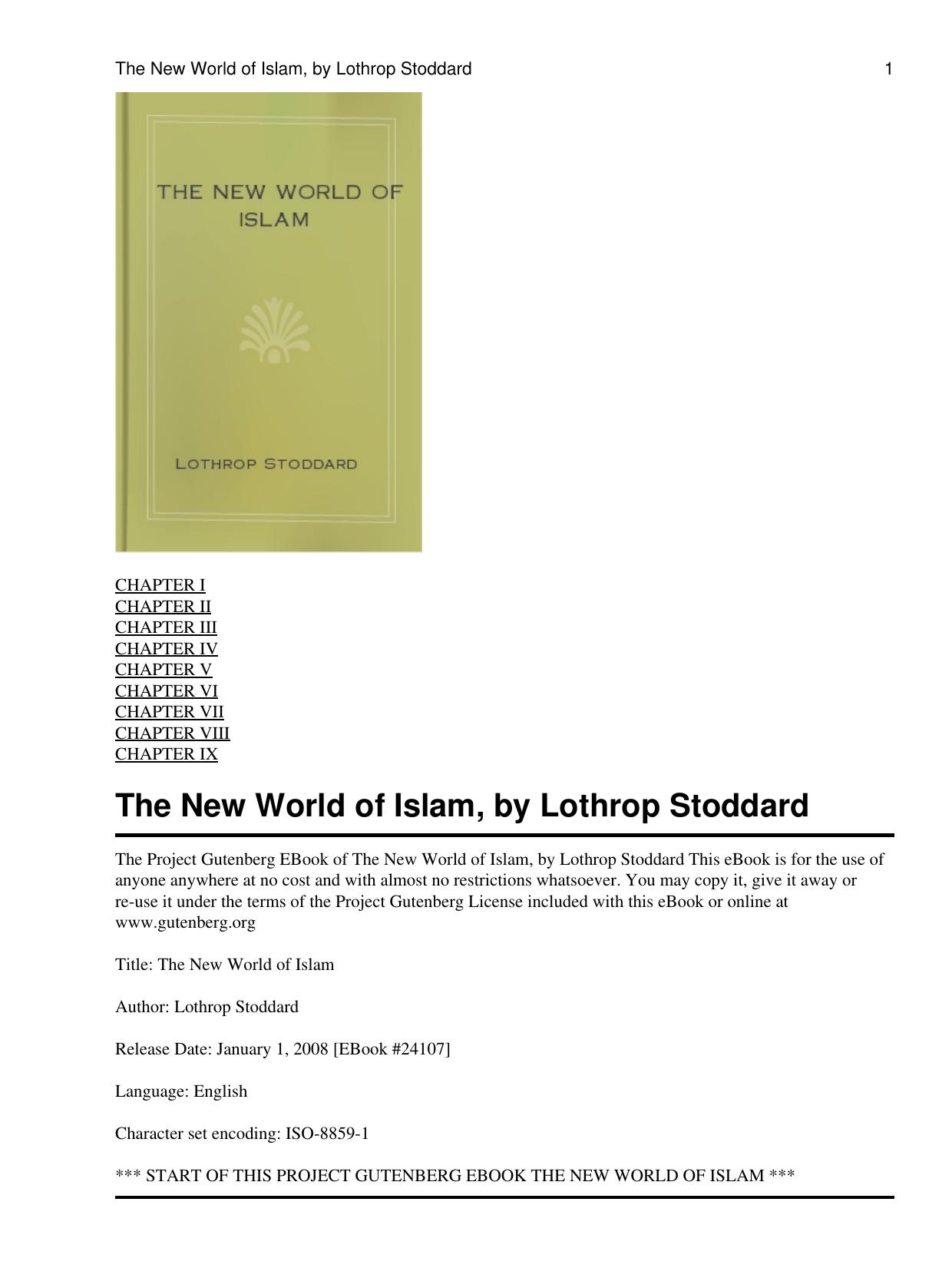The New World of Islam by Lothrop Stoddard

Author:Lothrop Stoddard [Stoddard, Lothrop]
Language: eng
Format: epub, pdf
Tags: Orient, Eastern, Islam, Non-Fiction
ISBN: 9781371990794
Google: 2AMbvgAACAAJ
Publisher: Creative Media Partners, LLC
Published: 2016-08-27T23:00:00+00:00
Largely owing to these bickerings, Allied action in the Near East was delayed through 1919. But by the spring of 1920 the Allies came to a measure of agreement. The meeting of the Allied Premiers at San Remo elaborated the terms of the treaty to be imposed on Turkey, dividing Asia Minor into spheres of influence and exploitation, while the Arab provinces were assigned England and France according to the terms of the Sykes-Picot Agreement—properly camouflaged, of course, as "mandates" of the League of Nations. England, France, and their satellite, Greece, prepared for action. British reinforcements were sent to Mesopotamia and Palestine; French reinforcements were sent to Syria; an Anglo-Franco-Greek force prepared to occupy Constantinople, and Premier Venizelos promised a Greek army for Asia Minor contingencies. The one rift in the lute was Italy. Italy saw big trouble brewing and determined not to be directly involved. Said Premier Nitti to an English journalist after the San Remo conference: "You will have war in Asia Minor, and Italy will not send a single soldier nor pay a single lira. You have taken from the Turks their sacred city of Adrianople; you have placed their capital city under foreign control; you have taken from them every port and the larger part of their territory; and the five Turkish delegates whom you will select will sign a treaty which will not have the sanction of the Turkish people or the Turkish Parliament."
Premier Nitti was a true prophet. For months past the Turkish nationalists, knowing what was in store for them, had been building up a centre of resistance in the interior of Asia Minor. Of course the former nationalist leaders such as Enver Pasha had long since fled to distant havens like Transcaucasia or Bolshevik Russia, but new leaders appeared, notably a young officer of marked military talent, Mustapha Kemal Pasha. With great energy Mustapha Kemal built up a really creditable army, and from his "capital," the city of Angora in the heart of Asia Minor, he now defied the Allies, emphasizing his defiance by attacking the French garrisons in Cilicia (a coast district in Asia Minor just north of Syria), inflicting heavy losses.
The Arabs also were preparing for action. In March a "Pan-Syrian Congress" met at Damascus, unanimously declared the independence of Syria, and elected Feisal king. This announcement electrified all the Arab provinces. In the French-occupied coastal zone riots broke out against the French; in Palestine there were "pogroms" against the Jews, whom the Arabs, both Moslem and Christian, hated for their "Zionist" plans; while in Mesopotamia there were sporadic uprisings of tribesmen.
Faced by this ominous situation, the "mandatories" took military counter-measures. The French took especially vigorous action. France now had nearly 100,000 men in Syria and Cilicia, headed by General Gouraud, a veteran of many colonial wars and a believer in "strong-arm" methods. On July 15 Gouraud sent Feisal an ultimatum requiring complete submission. Feisal, diplomatic to the last, actually accepted the ultimatum, but Gouraud ignored this acceptance on a technicality and struck for Damascus with 60,000 men.
Download
This site does not store any files on its server. We only index and link to content provided by other sites. Please contact the content providers to delete copyright contents if any and email us, we'll remove relevant links or contents immediately.
| Hadith | History |
| Law | Mecca |
| Muhammed | Quran |
| Rituals & Practice | Shi'ism |
| Sufism | Sunnism |
| Theology | Women in Islam |
The History of Jihad: From Muhammad to ISIS by Spencer Robert(2207)
Nine Parts of Desire by Geraldine Brooks(2007)
The Turkish Psychedelic Explosion by Daniel Spicer(1988)
The First Muslim The Story of Muhammad by Lesley Hazleton(1883)
The Essential Rumi by Coleman Barks(1631)
The Last Mughal by William Dalrymple(1570)
Trickster Travels: A Sixteenth-Century Muslim Between Worlds by Davis Natalie Zemon(1544)
1453 by Roger Crowley(1469)
by Christianity & Islam(1347)
God by Aslan Reza(1333)
A Concise History of Sunnis and Shi'is by John McHugo(1277)
Muhammad: His Life Based on the Earliest Sources by Martin Lings(1273)
Magic and Divination in Early Islam by Emilie Savage-Smith;(1197)
The Flight of the Intellectuals by Berman Paul(1180)
No God But God by Reza Aslan(1156)
Art of Betrayal by Gordon Corera(1132)
What the Qur'an Meant by Garry Wills(1121)
Getting Jesus Right: How Muslims Get Jesus and Islam Wrong by James A Beverley & Craig A Evans(1080)
The Third Choice: Islam, Dhimmitude and Freedom by Durie Mark & Ye'or Bat & Bat Ye'or(1068)
